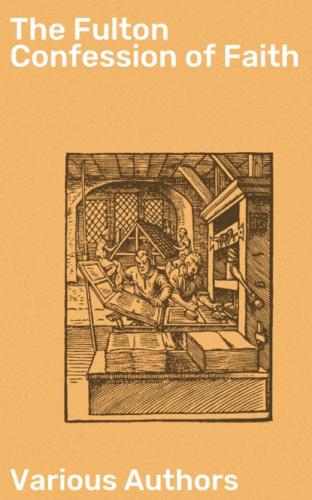This clearly demonstrates that we claim too much or do too little. We earnestly solicit our people to encourage the work of an evangelist. Not to spend his time in visiting large and well-organized churches, but to labor with the feeble and destitute churches and in places where there is no church. The churches should lovingly, freely, and faithfully contribute of their carnal means as God has blessed them to the support of brethren engaged in this needful work. We would not be understood to regard that there are degrees in the ministry, but different lines of work in the same office.
It is the special duty of the deacons to superintend the financial interest of the church. They should have control of the church treasury and expend it in serving tables. First, the table of the Lord. Secondly, the table of the poor. Thirdly, the table of elders that labor for them. They should receive the donations from the brethren and keep a correct account of same and report to the church, that it may know who are bearing the burdens of the church. The object of the deacons is to equalize the burdens of the churches. (See Practical Suggestions to Primitive Baptists, by Elder Cash.)
8. The London Confession of Faith, adopted over two hundred years ago by thirty-seven of the ablest ministers of England and Wales, representing over one hundred churches, has served one of the most needful services among our people of any document of faith since the days of the apostles, and has stood unquestioned as an expression of the Primitive Baptist's interpretation of the Bible from then till now. At the present assembly of fifty-one ministers, representing three hundred and thirty-five churches, aggregating fourteen thousand five hundred members in direct correspondence with over one hundred thousand Baptists, the Confession has been carefully read and approved. Language through the lapse of many years undergoes variations in applications and meanings, whereby certain clauses become more or less obscure in meaning. Wherever, in the opinion of this assembly, the meaning of a section was not apparent, footnotes were added to bring out the meaning. The office of this Confession of Faith is not to be regarded as a standard of faith and practice, but as an expression of our interpretation of the Holy Scriptures, which is the only rule of faith and practice. We recommend the Confession with the notes to careful perusal of all Primitive Baptists, and insist that they make themselves familiar with its teaching. Believing that such a course would obviate many of the difficulties that have so sadly distressed our beloved Zion in the few years passed, we would be glad to see this document, that has stood the test as an expression of our faith for more than two hundred years, become uniformly used in our local churches as their expression of faith and practice.
Praying God's blessings on his holy cause everywhere and that general prosperity may soon follow, we are your obedient servants and ministers of the gospel in the fear and love of God.
John M. Thompson, Greenfield, Ind.;
James H. Oliphant, Crawfordsville, Ind.;
J.W. Richardson, Petersburg, Ind.;
E.W. Thomas, Danville, Ind.;
Will M. Strickland, Fort Branch, Ind.;
H.A. Todd, Grayville, Ill.;
C.F. Stuckey, Carmi, Ill.;
I.J. Fuller, West Salem, Ill.;
Simon Reeder, Cottonwood, Ill.;
John Williford, Greenville, Ill.;
Daniel Lowery, Dalgren, Ill.;
W.A. Fish, Benton, Ill.;
J.B. Hardy, Calvin, Ill.;
J.V. Kirkland, Fulton, Ky.;
R.S. Kirkland, Fulton, Ky.;
J.J. Kirkland, Fulton, Ky.;
J.C. Ross, Crutchfield, Ky.;
L.F. Wallace, Elva, Ky.;
W.M. Hopper, Pottertown, Ky.;
K.M. Myatt, Clinton, Ky.;
A.M. Kirkland, Whitlock, Tenn.;
S.L. Pettus, Triune, Tenn.;
S.F. Cayce, Martin, Tenn.;
W.E. Brush, Clarksburg, Tenn.;
John Grist, Covington, Tenn.;
B.0. Deering, ---, Tenn.;
P.G. Johnson, Rutherford, Tenn.;
C.F. Caruthers, Friendship, Tenn.;
G.T. Mayo, Dresden, Tenn.;
R.C. Taylor,.Milan, Tenn.;
E.B. Simmons, Mixie, Tenn.;
J.N. Wallace, Tumbling, Tenn.;
J.L. Butler, West, Tenn.;
C.H. Cayce, Martin, Tenn.;
J.B. Holbrook, Rutherford, Tenn.;
W.T. Jackson, Ruthville, Tenn.;
Church Peel, Maury City, Tenn.;
J.G. Webb, Bonham, Tex.;
J.T. Stewart, Diamond, Ala.;
W.J. McCormick, Monroe, Ala.;
R.L. Piles, Poteau, Ark.;
J.B. Little, Abbott, Ark.;
J.K. Stephens, Brinkley, Ark.;
Lee Hanks, Boston, Ga.;
E.M. Verell, Trebloc, Miss.;
W.T. Goddard, Milner, Ga.;
T.E. Sikes, Cox, Ga.;
E.D. Williams, Taylor, Miss.;
J.C. Wilkison, McComb City, Miss.;
Ira Turner, Ashland, Mo.;
I.N. Newkirk, Dayton, Wash.
Chapter I - Of the Holy Scriptures
1. The Holy Scripture is the only sufficient, certain and infallible rule of all saving knowledge, faith and obedience,[1] although the light of nature and the works of creation and providence do so far manifest the goodness, wisdom and power of God, as to leave men inexcusable; yet are they not sufficient to give that knowledge of God and His will which is necessary unto salvation.[2] Therefore it pleased the Lord at sundry times and in divers manners to reveal Himself, and to declare that His will unto His church;[3] and afterwards for the better preserving and propagating of the truth, and for the more sure establishment and comfort of the church against the corruption of the flesh, and the malice of Satan, and of the world, to commit the same wholly unto writing; which maketh the Holy Scriptures to be most necessary, those former ways of God's revealing His will unto His people being now ceased.[4]
2. Under the name of Holy Scripture, or the Word of God written, are now contained all the books of the Old and New Testaments, which are these:
Of the Old Testament
Genesis, Exodus, Leviticus, Numbers, Deuteronomy, Joshua, Judges, Ruth, 1 Samuel, 2 Samuel, 1 Kings, 2 Kings, 1 Chronicles, 2 Chronicles, Ezra, Nehemiah, Esther, Job, Psalms, Proverbs, Ecclesiastes, Song of Solomon, Isaiah, Jeremiah, Lamentations, Ezekiel, Daniel, Hosea, Joel, Amos, Obadiah, Jonah, Micah, Nahum, Habakkuk, Zephaniah, Haggai, Zechariah, Malachi
Of the New Testament
Matthew, Mark, Luke, John, Acts, Romans, 1 Corinthians, 2 Corinthians, Galatians, Ephesians, Philippians, Colossians, 1 Thessalonians, 2 Thessalonians, 1 Timothy, 2 Timothy, Titus, Philemon,
